The Death of a Purposeful Man
One of philosophy’s many great questions is: what is the meaning of life? Late 19th century philosopher Friedrich Nietzsche claims there is no ultimate meaning of life. He attributes this to the loss in Christian faith stemming from the scientific revelations of the age. In order to analyze Nietzsche’s position one must understand his views.
For Nietzsche, reality is not purposeful or garner any meaning beyond the falsifiable truth systems we as humans have created through our powerful need to imagine a purpose to life. This truth system Nietzsche spoke of was the Christian religion, which had integrated its morals and beliefs into society as a whole since the 14th century. The faith viewed the universe as geocentric, created with order and purpose. Social roles were predetermined by God whose extensive and specific truth system that can be found in the Bible. For example, the Ten Commandments- passed from God himself to Moses- governed the way in which people should act towards one another; commandments societies began to govern themselves by.
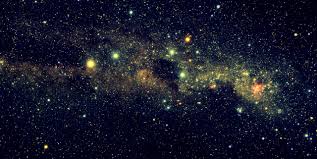
Yet, in the 17th century, advancements in technology led to a better understanding of the universe in which we inhabit. The most pivotal discovery of this time period was the realization that the planets did not revolve around the Earth; in fact, the planets, including the Earth, revolved around the sun. This discovery obliterated the geocentric world that the Christian truth system had implemented and gave birth to the heliocentric truth. What came to follow was the understanding of how insignificant the Earth is in comparison to the vastness that is the universe. Philosophically, this realization raised uncertainty within society of the Christian truth system. For example, if they were wrong about the geocentric model of the universe, which was apparently a fact provided by God himself, what else were they wrong about? Thus, for Nietzsche, these scientific revelations proved his belief in life as meaningless. Furthermore, the questions societies were now asking of the Christian truth system proved the systems falsifiability. For example, if the Earth is not the center of the universe but in fact a small insignificant addition to it, than humans, who are significantly smaller than the Earth, surely have no relevance in such a vast universe. Therefore, in the grand scheme of reality, such an idea as a truth system is, in essence, irrelevant. To Nietzsche, this Christian truth system was merely a way to fill ourselves with comfort through a false sense of meaning in a meaningless reality.
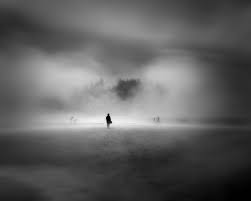
Thus, cue the famous Nietzsche saying, “God is dead,” and the truth has killed him. This saying not only embodies the realization of the fallacious Christian truth system, but humans need to cling to it. The latter is expressed through the parable Nietzsche writes in the Gay Science. A mad man is running through the town square proclaiming that God is dead. He is met by laughs from a group of non-believers who tell him they already knew that. Yet, the mad man claims they do not understand the severity of the death of God; it should be a psychological blow to all of humanity.To Nietzsche, the death of God means the death of objective truth and the realization of the meaningless reality; what Nietzsche calls nihilism. The non-believers in this parable represent society as a whole; we accept God is dead but we still cling to the truth systems the Christian faith has integrated into our society. This is what is considered passive nihilism; when one is more secular than religious yet still embraces the idea of objective truth. Active nihilism- the nihilism Nietzsche believes we need to embrace- is when one understands there is no ultimate meaning or God; meaning is what we create.
In the time Nietzsche was writing the Christian religion still had quite the hold on society. Yet, as said in the latter, religion has faded as the source of truth. Thus, I would like to apply Nietzsche idea of the meaningless life to modern day before disagreeing or agreeing with it. Scientific exploration into the universe has progressed immensely since Nietzsche’s time. We now understand the roots of humanity lie in evolution, the universe is infinitely vast and constantly expanding, and there is a sufficient amount of chaos in the cosmos rather than the once believed order. Thus, modern scientific exploration has only further solidified Nietzsche’s theory; the universe is too big for humans to have any impact in it.
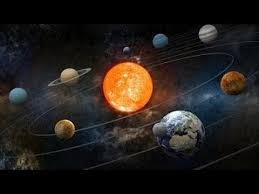
For example, if the Earth were to explode no real changes in the solar system would occur. Yet, if the Sun were to do the same, our solar system as we know it would either fall out of existence or drastically transform. Remember, this example only deals with our solar system so imagine how insignificant the explosion of the Earth would be to the cosmos in general. With all this in mind it is virtually impossible to disagree with Nietzsche’s view; in the grand scheme of things, humans are meaningless. Yet, we are here, on planet Earth, living and thriving and prepared to do whatever it takes to defend our meaningless lives. Why is this? Perhaps one should place Nietzsche’s argument on a smaller scale of things; a more humanly scale.
No matter the religious or secular views, morality and the struggle between right and wrong has always been a humanly aspect to existence that fills ones life with meaning. The choice in our morals lead us to the choices of our values, daily regiments, and creation of identity. Yet, it is a truth system that cannot be explained by God and cannot be proven solely on reason. To clarify, Nietzsche believes God did not give us morals and reason cannot help in choosing what is always right and what is always wrong. But, what Nietzsche knows for sure is, all questions of dualistic reality aside, that there is only this world we live in and thus through history we can find where such ideas of truth systems, like morality, come from. Consider cultural relativism which is the principle that an individual person’s beliefs and activities should be understood by others in terms of that individual’s own culture. Although considered a “principle” one must understand the meaning within this definition; beliefs, activities, and truths vary based on culture.
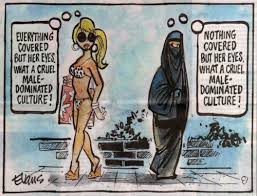
For example, female circumcision is a common practice in over twenty Africa countries while in Western societies it is viewed as female mutilation and illegal. Through the examination of history one could find how such a practice came to be and viewed differently in both societies yet what this difference proves is if there are objective truths then there must be a right or wrong here. Yet, a right or wrong verdict would go against the undeniable fact which is cultural relativism. That being said, for Nietzsche morality is not a given or timeless; it is a system subject to change. The latter backs this claim by showing that there are no objective truths, such as morals that humans find bring meaning to their lives, but rather subjective ideas we fill ourselves with. Once again, it seems that Nietzsche has proven the meaningless of human life on a more humanly scale through the logical dismemberment of the truth system of morality.
And yet, after all this talk of the meaningless human life, we are still here. This just begs the question: why? If we are so insignificant why would we even be here? It is questions like these that make people believe in what is seen as the leading cause of assumed human meaning; fate. Nietzsche has shown how we as humans are insignificant in the grand scheme of the universe as well as the subjectivity of truth systems on the humanly scale which in turn makes us merely vessels to fill ourselves with our own ideas of things such as morality. Yet, he never truly proves there is a no meaning to our lives in terms of why we are here. Thus, allow me to play devil’s advocate and address the idea of fate. Fate does not follow a moral code or truth system; it is merely the idea that you are here for a reason whatever that may be. Fate is grounded in the belief of a predetermined path one travels to the understanding of their ultimate meaning that is traditionally relayed at death. This meaning could be bad or good, significant or insignificant, and so on. Thus, on the grand scale of the universe and the minute scheme of humanly existence, no matter how insignificant we are or the validity of our truth systems we are alive in this universe so there must be some meaning to that or reason why. Therefore, fate, existing separately from the relevance of truth systems or scientific fact, becomes an independent unbiased entity that challenges Nietzsche claims that human life is meaningless by filling humans with the belief in a predetermined objective meaning.
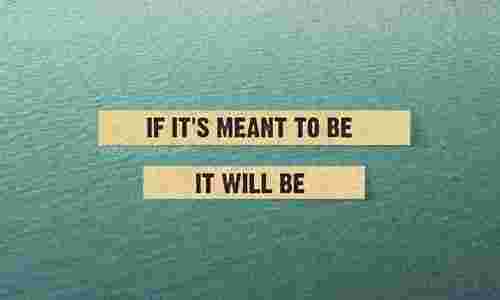
Although a strong counter argument to Nietzsche’s theory, the idea of fate can be challenged through the notion of choice, which reinstates Nietzsche’s belief. We as humans have the total freedom to choose what ever we want to do no matter the social laws or norms instated in society. Fate would claim that even though it may seem like you had choices in life, those choices were predetermined which is illogical to claim. For example, imagine you awake in a white room with doors on either side of you. If you walk through one you will become a successful businessman and if you walk through the other you will become a successful actor. Both choices are equal in all economic, personal, and emotional aspects. Thus, you have total freedom to choose one or the other. It is not a question of fate because fate is only ever relevant in the presence of binaries upon arrival at a destination.

For example, you are standing at a crossroads with no idea of what is ahead but you see four paths. You can choose to go down any path because they are all equally unknown to you. Yet, the moment you walk down that path one believes it was their fate because it becomes the known beside the unknown you were presented with when choosing. More simplistically, you are at a similar crossroad and you take one path that leads you to your one true love. Upon arriving, the other paths are revealed to you and you see they all led to unequal and varying destinations that make you assume that choosing this one and dodging all the other paths was an act of fate; you were destined to be there. Now consider, you chose the same path but upon arrival, when the other paths are revealed to you, they all have a similar outcome with a similar true love. This would make you realize there is no predetermined path because any of those choices could have led to a similar outcome. Thus, we realize fate is not as unbiased as claimed earlier; its relevance relies on the appearance of binaries. Choice on the other hand is truly unbiased and fits perfectly into Nietzsche’s theory. There is no predetermined fate in choice so there is no meaning in it other than the meaning you supply it with. Choice is the compass with which humans use to construct meaning in a meaningless life.
Upon analyzing and applying his theory to both the grand scheme of the universe and the humanly scale of morality and truth systems I find myself agreeing with Nietzsche’s logic; life is meaningless and thus we attempt to fill it with meaning. Ironically, although I agreed I find myself clinging onto the belief of humanly meaning within existence by supplying the idea of fate as a counter argument to Nietzsche’s theory. Yet, once examined, one finds the role of choice effectively disproves the idea of fate and solidifies Nietzsche’s theory. In turn, we come to realize the death of God is also the death of the purposeful man.
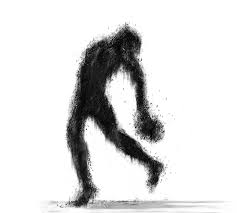
What do you think? Leave a comment.











I’m no expert on the philosophical theory but the apparent dismissal of science puzzles me.
I suspect that Nietzsche’s real problem was not christianity but emasculation – more precisely the lack of an arena to develop a proper masculine identity. This was what messed him up.
I agree with your interpretation of Nietzsche, and would go so far as to say that what we think of as ‘the Self’ is an internalisation of drives that has become so habitual that we think of it as natural: fundamentally we are neither body nor mind, but embodied behaviour.
Nietsche was just a mid-European misanthrope.
Good post, raising so many interesting points about Nietzsche’S thought.
Thanks for a very nice treatment of this interesting topic.
Nietzsche did climb mountains, loved the high view & far perspective, got some of his best insights while hiking.
I am puzzled by the claim that “the Christian religion … had integrated its morals and beliefs into society as a whole since the 14th century.”
I am not sure what “integrate” could possibly mean in this context; but, that aside, why the 14th century? It seems to me that the influence and, soon, the dominance of Christianity (in Europe) dates back as far as the Emperor Constantine in the early 4th century.
Why ignore the thousand years in between?
Interesting article. I am wondering though; following your logic; the death of god is also the death of purposeful man; does that imply that the purposeful man is religious? Also, fate is one of these concepts that I find the most difficult to discuss. Such an abstract reliance a harmonious weave of purpose and affinity. What if choice is the illusion that fate imposed upon us; whether on the religious or merely metaphysical sense of an organized universe. Very thought-provoking article on the whole!
Interesting article. I am wondering though; following your logic; the death of god is also the death of purposeful man; does that imply that the purposeful man is religious? Also, fate is one of these concepts that I find the most difficult to discuss. Such an abstract reliance a harmonious weave of purpose and affinity. What if choice is the illusion that fate imposed upon us; whether on the religious or merely metaphysical sense of an organized universe. Very thought-provoking article on the whole!
Very interesting article, I agree with your ideas of Nietzsche.
Nietzsche was a brilliant philologist and philosopher. His pioneering of the philosophical doctrine nihilism and his idea of eternal return also played interesting roles in his thought.
Hi Riccio: Thank you for your article, which covers, I must admit a broad range of topics – Nietzsche’s philosophy, metaphysics, ethical philosophy, religion, the Enlightenment, and so on – so that I’m not sure you’re *quite* able to zoom in on one argument and adequately substantiate it. For example, you say that, to Nietzsche, “reality is not purposeful or garner[s] any meaning beyond the falsifiable truth systems we as humans have created through our powerful need to imagine a purpose to life.” Yet you then say later on, after the advent of scientific discoveries as purported to come in the 17th century, or Enlightenment period (though I believe Scientific discovery to not be as “neat” as to limit it to one epoch) “Thus, for Nietzsche, these scientific revelations proved his belief in life as meaningless.” This seems like a contradiction, yes? What does “prove” mean here? If nothing can be proven, how can Nietzsche’s philosophy be proven? In other words, I feel you are revolving around some good ideas, but you’re taking a lot for granted, here, and thus, the argument seems a bit reductionistic to me. I’ve love to comment on any of these topics, but I feel each one’s one historical trajectory (“history,” being in of itself, a problematic term, I agree) is not being presented here in a nuance fashion. I am currently enjoying Charles Taylor’s “A Secular Age.” It’s long, but not a dense read. In it, Taylor is arguing a less “causal” view of historical precedence for each of these events, but a more complex, inter-woven one in the telling of, “How did we get from THERE, to HERE?” It’s worth looking into!
I feel like life’s meaning is to discover yourself!
I resonate strongly with many points in this article. The debate between fate and choice can go around in circles. Is fate an illusion in choice, or choice an illusion in fate? Can both exist simultaneously, without one being overpowered by the other? Personally, I think that fate is the illusion that we are led to believe in when our choices lead us to certain points in our lives, but it’s a very hard pill to swallow sometimes.
The only way to find a meaning in life would be to hold an egocentric perspective. The more we look outward, the more we see how small we really are. There is no logical meaning to anything when taking a global perspective. Holding a more local perspective would create the appearance of having a larger impact on society as a whole, but as you look at the entire cosmos, there could be no meaning for anything that occurs in our world.
Riccio–amazing article! I do share Blephen75’s critique of the statement: “Thus, for Nietzsche, these scientific revelations proved his belief in life as meaningless.” As you explain that these truth systems are human creations to validate human existence, in reference to religion (and more specifically Christianity), I think it would also help to delve into the distinction between scientific fact and the invention of human logic. Perhaps rephrasing this statement into something like: “Thus, for Nietzsche, these scientific inquiries corroborated his analysis of the futility of human existence.” And then from there perhaps discuss the paradox of scientific revelations as it pertains to human truths and the human invention of logic. I love the concept of fate and free will that you focus on towards the end of the article. Your conclusion was very cohesive and compelling. As a fellow Nietzsche enthusiast, I’m particularly found of his seminal work “Thus Spoke Zarathustra” and the quote “shatter the tablets” (in reference to Moses, and of course translated differently among several scholars). I think that quote is especially relevant to this article.
I totally disagree with the view of this article. Life is not meaningless nor is it purposeless. Life, according to Eleanor Roosevelt “Life is what you make it. Always has been, always will be” Life to me is an art , just like many other things today. Its like being presented with a blank canvas, sheet of paper or even tools or material and sometimes many are presented with nothing and they have to make something with what they have been given or something out of nothing and then aggrandize on that thus adding purpose to one’s life and creating a reason for living. People must believe in something; anything, “because if we don’t stand for something, we shall fall for anything” (Peter Marshall). I commended you your great article highlight your opinion on what you think about life but its not a fact. I am so happy that the majority of the world doesn’t look at it as presented in this article or else we would still be in the stone age or to a lesser extent extinct. There is a God, regardless of the religious faith and life does have meaning and to say it doesn’t would be an insult and a slap in the face to the many people years on years who have fought to give us a better life and made the world into what it is today.
The author of this article also suggests that life is what you make it (see the 4th paragraph). The over arching point, if I have read correctly, is that we no longer have an external Other (God) framing our perception of meaning. That is to say, we don’t kill people because it is a sin; we don’t kill people because we have constructed a ethical understanding of life, death, and murder that is separate from God.
I haven’t entered into the world of philosophy, but this article/post is interesting. I had never heard of the Late 19th century philosopher Friedrich Nietzsche. However, I do feel that life is meaningful in itself, and we are just the expression of this life. I understand that “Death of God” means the death of religious structure, maybe? The Universe is just not out there somewhere, but it resides in all of us, and we reside in it. My 11-year-old daughter was looking at all of the planets in the Universe in a book, and she wondered if there was life on Mars since it was the closest planet to Earth. My husband said that it has to be life because they found water on Mars, which I’m not sure if that’s true or not, but I then said to them both: What if our standard of what constitutes life, which one of those things is water, doesn’t apply to other planets? Life is meaningful, and on this planet and at this time, humans, animals, trees, nature in general, the birth of children, the death of loved ones, are all meaningful.
Hi Vchelle
I do believe that there is life out there in our vast universe of ours, there may not be life form on Mars as we understand life but there could be another life system. I also believe that our universe is too vast for their not to be life out there somewhere maybe not in our solar system but in another far off galaxy.
Super interesting article. I thoroughly enjoyed it. Though it is an excellent article, I feel like there are so many questions left unanswered, or even raised from reading it. I may be a little dense, and this may just be one of the many unanswerable questions but what is the meaning of life? Beyond fate, beyond Nietzsche, beyond all that. Why are we here? I love your article and agree with a lot of it, but there is still this drive in me that says there is some kind of meaning, as if that meaning were a definitive answer. Hopefully we get that answer when we die, right? Cheers, mate.
What is right? & What is wrong? are two things that have been conditioned into us and is mainly based on three things 1) The beliefs of our families, 2) Our religious beliefs and 3) The belief system in our country. We also are a part of a country that says that Murder is wrong and yet we send our Armed forces into mortal combat where murder is a part of daily lives for them, so if we are being told what is right and wrong by so many different people but we have people such as the Armed forces who are risking their own lives and other people’s lives how can we really know what is right and wrong. A quick note to all the people who may either have a loved one in the Armed Forces, Are a part of the Armed Forces or Have been involved in the Armed Forces I do thank you from the bottom of my heart for keeping Australia safe and for risking your lives so that we can all sleep soundly at night.
Nietzsche! A wondrous exploration into what is a harrow journey into human existence, I do find that his place in this article is just and deserving.
A little ways into the article though, I’m finding myself concerned in the way that you portray the elaborate ideas that Nietzsche possessed, in part that it does not pin the accurate philosopher, necessarily. How I am to tell you how you should interpret such a philosopher is not my right, but to share what I find to be a thinker that should be regarded much less seriously than you might figure. His rich and strikingly unique style of what to many are grim thoughts make for quite the journey, in what appears to sway and play with matters that carry a solemn regard, yet Nietzsche is nonetheless embolden. I should like to say he is the optimistic sort of nihilist, if at all to justify what makes the meaningless life pave for creations wholeheartedly real to humanity, to the vitality that he revealed in The Birth of Tragedy, the potential he invoked through Ecce Homo, and so on.
I should like to resist immersing into hapless pondering and banter, but it is all that reading, studying, and most importantly enjoying the works of Nietzsche, that I want to help others understand how remarkable of philosophy he provides.